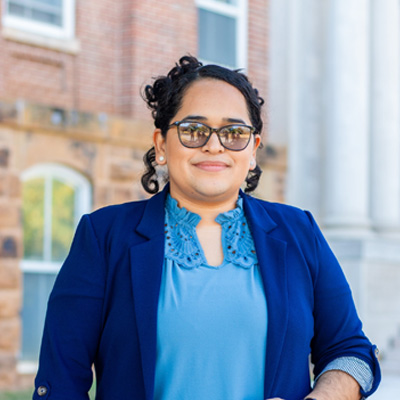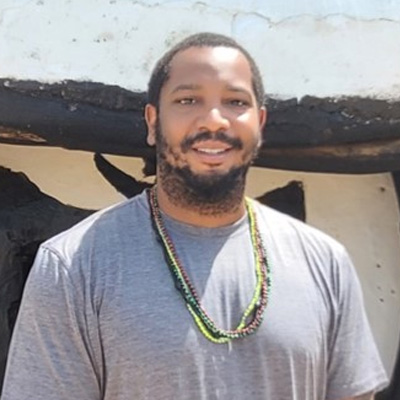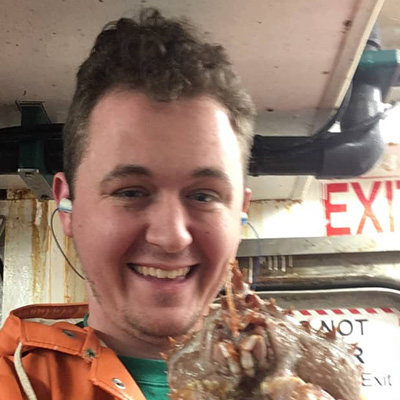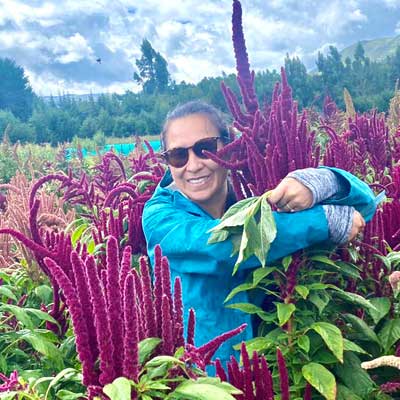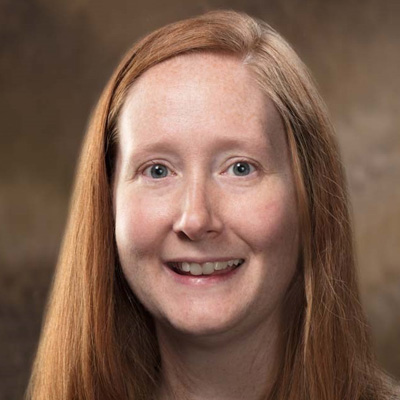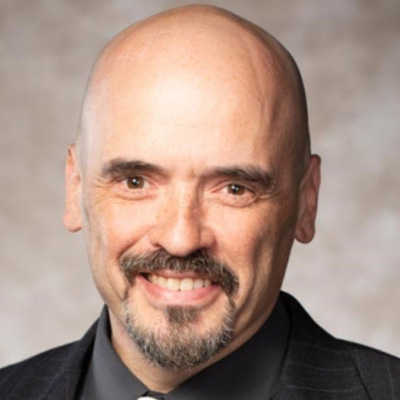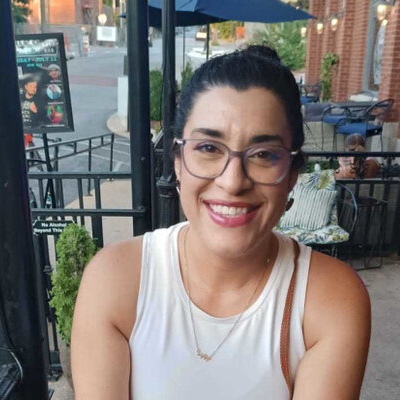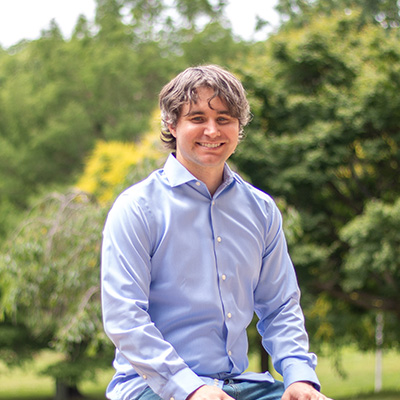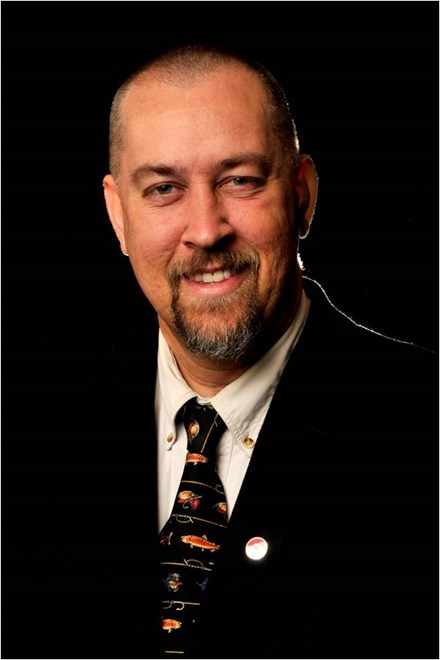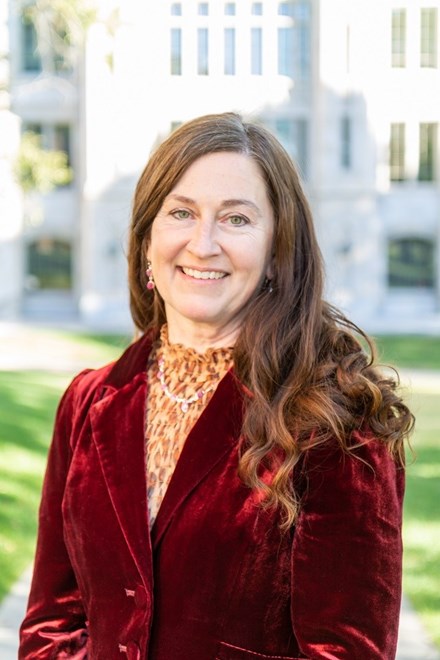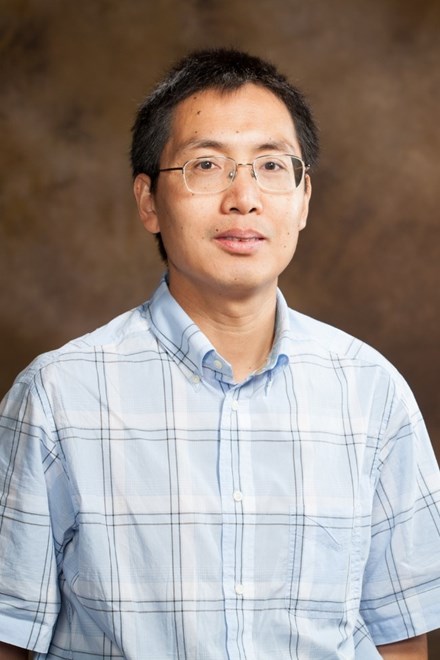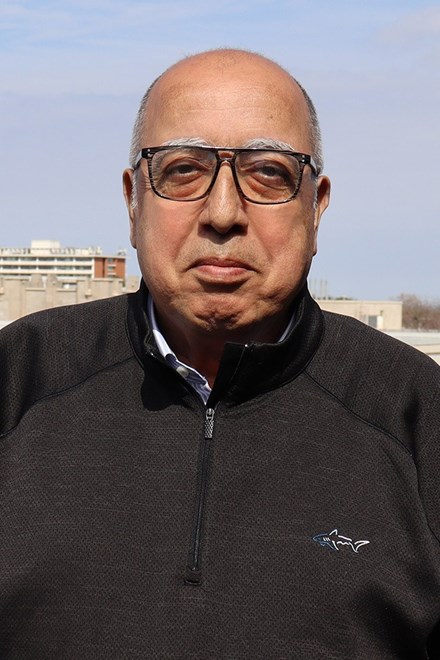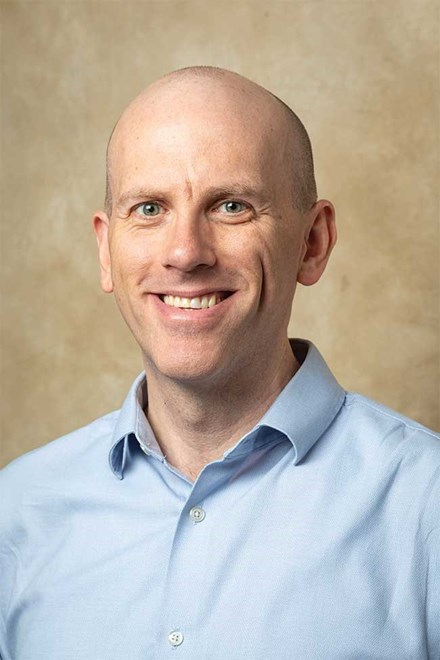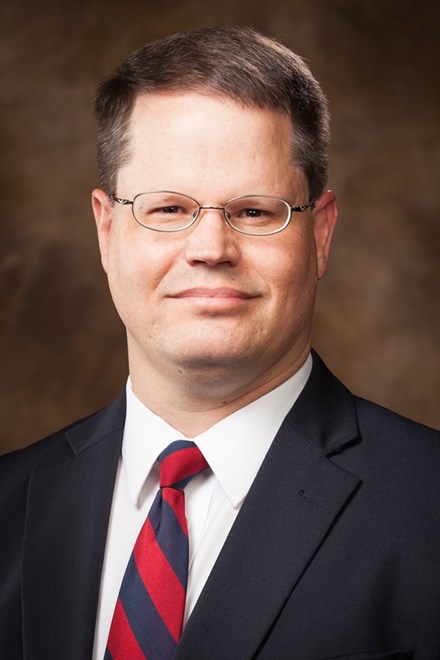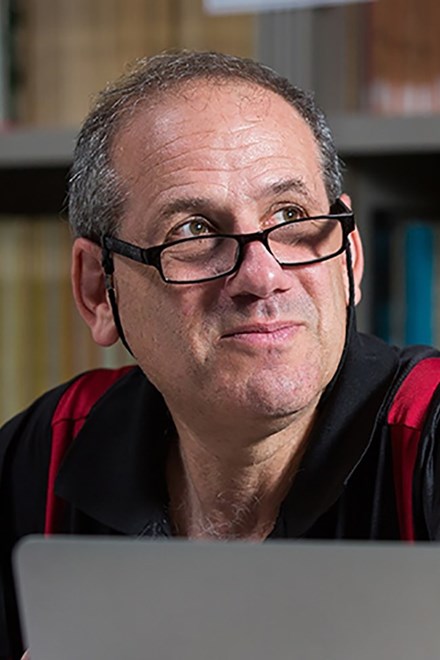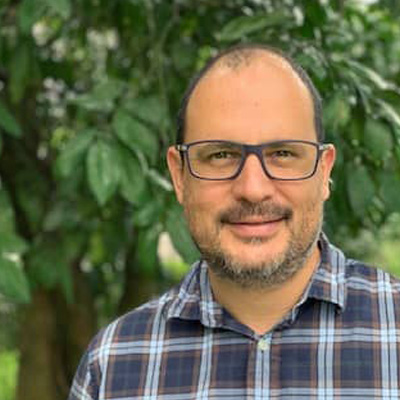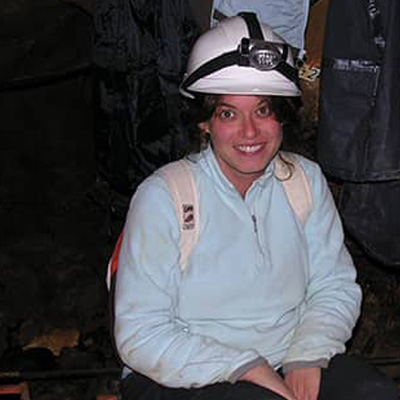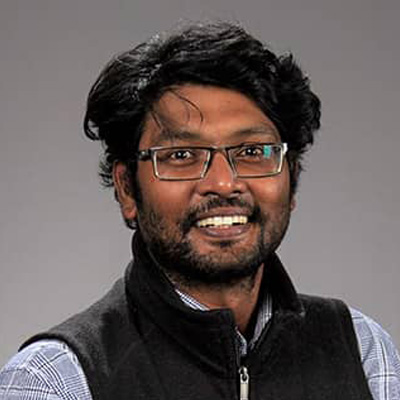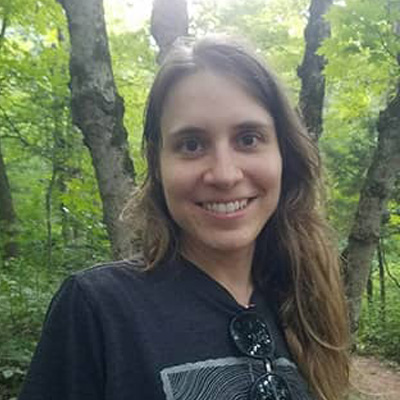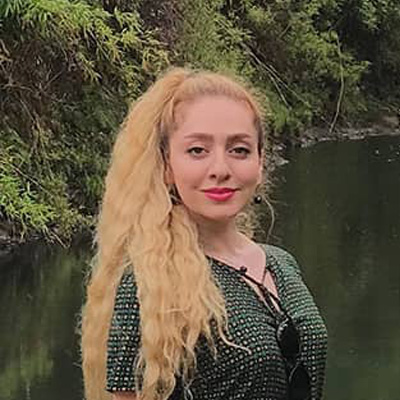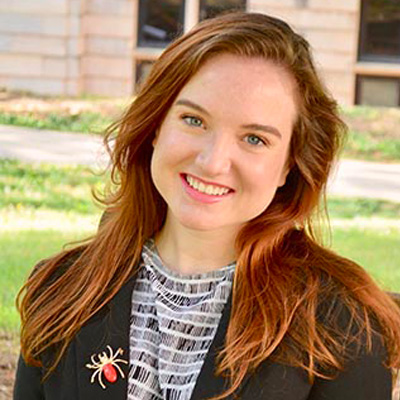Program Directory
Our Students
Jessie Bonilla
Degree Program(s): BS Mechanical and Industrial Engineering
Previous Institution(s): Universidad Technoligia de Panama
Research Interest(s): Water Resources
Terrius Bruce
Degree Program(s): BS Environmental Studies
Previous Institution(s): Florida Agricultural and Mechanical University
Research Interests(s): Sustainability for Assisting Food Insecurity
Courtney Cooper
Degree Program(s): BS Horticulture, MS Agricutural Economics, MS Rural Development
Previous Institution(s): University of Arkansas, Humboldt U - Germany
Research Interests: Sustainable Local Food Systems
Gertrude Dotse Bampoe
Degree Program(s): BS Agribusiness Management, MS Management Science and Engineering
Previous Institution(s): Kwame Nkrumah University of Science and Technology, Jiangsu University
Research Interests: Agribusiness Management
Eston Dunn
Degree Program(s): BS Ecology, Evolution, and Conservation Biology
Previous Institution(s): BrighamYoung University Hawaii
Research Interests: Couipled human and naturalresources management systems, fisheries managment in the
North Pacific.
Lucia Escalante Ortiz
Degree Program(s): BS Agronomy, MS Crop, Soils and Enviornmental Sciences
Previous Institution(s): Universidad Nacional de Cajamarca, University of Arkansas
I am conducting a comprehensive study to assess the impact of traditional and conservation crop management practices on annual greenhouse gas (GHG) emissions in in-row and in-furrow irrigated crops in Arkansas. Additionally, I am investigating how different measurement methods, specifically comparing enclosed-headspace gas sampling chambers to in-field (LI-COR soil gas analyzer), influence GHG measurements. Furthermore, my research integrates the concept of smartagriculture, where applicable, to explore how modern technology, approaches can enhance themanagement of GHG emissions in agricultural settings.
Brandy Everett
Degree Program(s): BS Environmental Science
Previous Institution(s): University of Central Arkansas
Research Interests: Water resources
Kaitlyn Fitzgerald
Degree Program(s): BA Classical Studies /BS Geosciences, MS Classical Archaeology
Previous Institution(s): Virginia Tech, Florida State University
Research Interests: Risks of Climate Change on World Heritage Sites

Farah Gasmi
Degree Program(s): B.S. Civil Engineering, M.S. Engineer in Water Management
Previous Institution(s): Higher Institute of Environment, Urban Planning and Building Technologies - Tunisia, National Agricultural Institute of Tunisia
Farah Gasmi is a hydraulic engineer who graduated from Tunisia. She holds a master's degree in Geoinformation Systems and is currently pursuing her Ph.D. degree in Environmental Dynamics. Her thesis focuses on enhancing urban flood resilience in the USA through the utilization of GIS and remote sensing techniques, while also incorporating social vulnerability factors. Her research aims to contribute to the development of a more resilient response to flood hazards within the state.

Kate Gilliam
Degree Program(s):BS Environmental Sciences, MS Environmental Science
Previous Institution(s): Central Washington University, Southern Methodist University
Research Interests: Hydrology

Maria Gorret Nabuwembo
Degree Program(s): Geomatics Engineering
Previous Institution(s): Ndejje University
Maria's current research is focused on the National Adaptation Plan (NAP) optimizing remote sensing techniques to measure adaptation, particularly in the agriculturalm sector.
Her research interests encompass Remote Sensing, GIS, UAV, Water management and Agriculture Adaptation. She is committed to propelling meaningful progress in addressing environmental challenges and promoting the impactful utilization of geospatial technology both locally and globally, in the quest for sustainable solutions.
Erin Grantz
Degree Program(s): BA German, BS Environmental, Soil, and Water Science, MS Crop, Soil, and Enviornmental
Sciences
Previous Institution(s): University of Arkansas
Research Interests: Spatial and temporal scales of watershed processes and assessing water quality

Curt Hall
Degree Program(s): BS Geography, MS Community and Economic Development
Previous Institution(s): University of Central Arkansas
Research Interests: Automated recovery of Forest Age Data
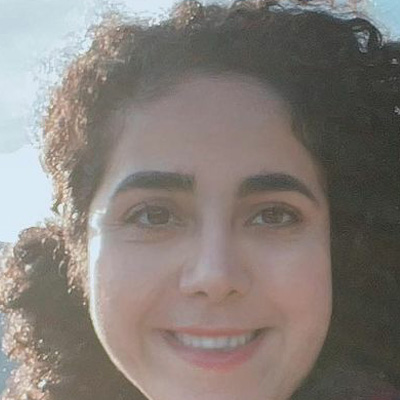
Mahboobeh Hemmati
Degree Program(s): BA Architectural Engineering, MA Urban Design
Previous Institution(s): Guilan University, Islamic Azad University Sciences and Research Branch
Research Interest(s): Urban Architecture
Mahboobeh is a research assistant and a Ph.D. candidate in the Environmental Dynamics Program at the University of Arkansas. Her primary research focuses on conducting a comprehensive whole building Life Cycle Assessment (LCA) with a particular emphasis on the de-carbonization of construction sites.
Her research has yielded significant results, and she recently published a paper in the high-prestige Journal of "Sustainability". Furthermore, she presented her findings at the Society of Wood, Science, and Technology (SWST) 65th International Convention in Kingscliff, NSW, Australia, and the Forest Products Society 75thannual International Conference in Madison, WI.
She lately, successfully completed her qualifying exam for candidacy and presented her dissertation proposal titled "Decarbonization Construction Process Model for Mass Timber Projects. This topic has garnered interest from the international academic community, with several scholars expressing their eagerness to collaborate on this research, including distinguished scholars from Spain.
She has been awarded two study abroad fellowships, the highly-regarded Sturgis Fellowship from the University of Arkansas, and theSTSM fellowship from the Society of Wood, Science, and Technology which has facilitated her international travels. She is now in Spain to conduct joint research with a research team at Jaume I University. The benefits of such collaboration are numerous, including the broadening of knowledge, the introduction of diverse perspectives, and the exchange of ideas and insights. These international collaborative efforts have the potential to generate groundbreaking results and contribute significantly to her research. Being in a European research environment, in addition to U.S. academia, provides her the opportunity to enrich her doctoral research and gain exposure to alternative perspectives in a transformative way. Furthermore, this experience will broaden her international communication network with other seasoned scholars.
Moein Hemmati
Degree Program(s): BA Architecture Engineering, MS UrbanDesign
Previous Institution(s): Guilan University, University of Tehran
Moein Hemmati is a research assistant and Ph.D. student in the Environmental Dynamics Program at the University of Arkansas. His research primarily centers around Life Cycle Assessment (LCA) with a special emphasis on assessing the environmental impact during building operations. He is committed to advancing the field of sustainable architecture and seeking innovative solutions to minimize the ecological footprint of the constructed environment.
Also, Moein has been exploring the application of machine learning and deep learning
techniques within the realm of building LCA. Moein had the opportunity to present
his research findings at two prestigious conferences: the 65th International Convention
of the Society of Wood, Science, and Technology (SWST) in Kingscliff, NSW, Australia,
and the 75th annual International Conference of the Forest Products Society in
Madison, WI.
Kabi Khatiwada
Degree Program(s): BS Environmental Science, MS Climate Change
Previous Institution(s): Tribhuvan University
Research Interests: Understanding the influence of climate change, methane gas emissions, and the availablility
of water resources.
Mark Lanoue
Degree Program(s): BS Computer Science/Business and Bio-Sciences
Previous Institution(s): University of Southern Mississippi
Research Interests: Nanomaterials
Maria Lopez Rojas
Degree Program(s): BS Anthropology, MS Anthropology
Previous Institutions: University of Costa Rica
Maria Lopez Rojas is a Costa Rican anthropologist interested in archaeobotany, agroforestry, landscape domestication, and cultural change over time. Lopez Rojas collaborated with archaeological projects in the Central and Northern Highlands, Northern Plains, Pacific Coast, and the Central Caribbean of CostaRica, where she participated in archaeological surveys, excavations, soil sampling, pottery analysis, and microbotanical analysis (phytoliths). Maria’s goal is to foster systematic archaeobotanical studies in Costa Rica, for this, she has conducted phytolith analysis to identify the connections between paleovegetation changes and subsistence practices in the Nuevo Corinto archaeological site, Costa Rica. Also, Maria is committed to the communication of cultural heritage to a broad audience, and because of this, she is co- producing the podcast LACAP to share Pre-Columbian history and visualize the long-term human occupation of Costa Rica.
Riasad Mahbub
Degree Program(s): BS Environmental Science
Previous Institutions: North South University
Research Interests: Modeling greenhouse gas emissions in rice fields in Arkansas
Maureen Mantooth
Degree Program(s): BA Geography, BS Earth Science
Previous Institutions: University of Arkansas
Research Interests: Cartography, Hazards, Resillency
Samuel Martin
Degree Program(s): BA Anthropology, MA Anthropology
Previous Institution(s): University of Central Florida
Research Interests: Landscape Archaeology, Spatial Analysis
Luke Norman
Degree Program(s): BS Horticultural Science
Previous Institution(s): Texas A & M University
Research Interests: Native plants
Alexis O'Callahan
Degree Program(s): BS Biology
Previous Institution(s): Saint Peter's University
Research Interest(s): Soil Microbial Ecology
Ben Opiyo
Degree Program(s): BS Geology, MS Geosciences
Previous Institution(s): University of Nairobi, Kenya; Georgia State University
Research Interests: Climate Modeling
Shelby Dawn Osborne
Degree Program(s): BS Biology, MS Earth Science and Policy
Previous Institution(s): University of Arkansas, Fort Smith; University of North Dakota
During her PhD thesis research, Shelby is exploring the chao/kosmotropic properties of bine solutions in the presence of ancient protein sequences (AncC). These interactions assist us in understanding the mechanisms that allow for the bioavailability and precipitation of certain life-necessary organic molecules.
She is currently interning at NASA HQ in DC during Fall 2023 studying planetary protectional and contamination control.
Alexandria Peterson
(She/Her, They/Them)
Degree Program(s): BA Anthropology/Classical Civilizations, MA Anthropology
Previous Institution(s): Loyola University Chicago, University of Arkansas
Research Interest(s): Dental Microwear Analysis, Diet
Putu Pujiantari
Degree Program(s): BS Biology, MS Anthropology
Previous Institution(s): Universitas Nasional Jakarta, University of Arkansas
Research Interest(s): Effects of climate change on gastrointestinal microbiome in primates on Borneo
Harrison Smith
(He Him, They/Them)
Degree Program(s): BS Biological Sciences, MS Environmental and Sustainability
Previous Institution(s): University of Michigan, University of Arkansas
Harrison is broadly interested in regenerative agriculture, sustainable food systems,
biodiversity conservation, and environmental justice. His current research focuses
on applications of geospatial tools for enhancing sustainability of agroecosystems
and improving livelihoods of producers and farmers.
Previous projects have included applications of ground penetrating radar for field-scale
soil characterization, landscape analysis of reclamation efforts at the Tar Creek SuperfundSite,
and fertility and crop suitability mapping at the national scale in Central America.
In 2023, Harrison was awarded a NIFA Predoctoral Fellowship to conduct his current
research which uses machine learning to assess the impacts of climate change on U.S.
corn and soybean production.
When not working on research, Harrison enjoys long bike rides, working in his home garden, and foraging for wild edibles.
Colson Tester
Degree Program(s): BS Agricultural Business, MS Agricultural Economics
Previous Institution(s): University of Arkansas
Impacts of the Natural Resource Conservation Service cost-shared conservation practices on water quality, particularly identifying if agricultural practives such as cover crops, nutrient management plans and buffer strips demonstrate postiive impacts on sediment, nitrogen, and phosphorous loads at the catchment scale.
Rasool Vahid
Degree Program(s): BS Geomatics Engineering, MS Geodesy & Geomatics Engineering
Previous Institution(s): Seraj Institute of Higher Education, University of Tabriz
Research Interest(s): Estimating loss and susceptibility due to natural hazards and particularly mulitple
hazards utilizing HAZUS.
Hanan Webhi
Degree Program(s): BS Banking and Finance, MS Civil Engineering
Previous Institution(s): Lebanese University
Urban metabolism issues in contex of the built environment and natural resource management, addressing climate change by introducing sustainable typologies and approaches in the building construction sector, building design and proces to achieve net-zero houses.
James Wesolowski
Degree Program(s): BA/BS Sociology/Geology, MA Antropology
Previous Institution(s): Indiana University Northwest, University of Arkansas
Research Interest(s): Use of geophyics and excavationto analyze the distribution of architectual types and
better understand the habitational landscape of Tiwanaku, Bolivia
Dalton Williams
Degree Program(s): BS Psychology, MS Public Administration
Previous Institution(s): Troy University
Dalton is interested in the effects of climate change on human health. After being stationed in Southeast Asia, he saw firsthand the impacts pollution can have on overall wellbeing, inspiring him to further pursue learning about environmental health. He holds a Master of Public Administration degree from Troy University, where he studied how epidemiology is advancing due to climate change.
Jinging Yan
Degree Program(s): BS Atmospheric Sciences, MS Atmospheric Sciences
Previous Institution(s): Lanzhou University
Research Interest(s): Calculation of the Green View Index from the eye-level and to better understand how
much green we can obtain at each location.
Our Staff and Our Administrative Board
Our Staff
Our Administrative Board
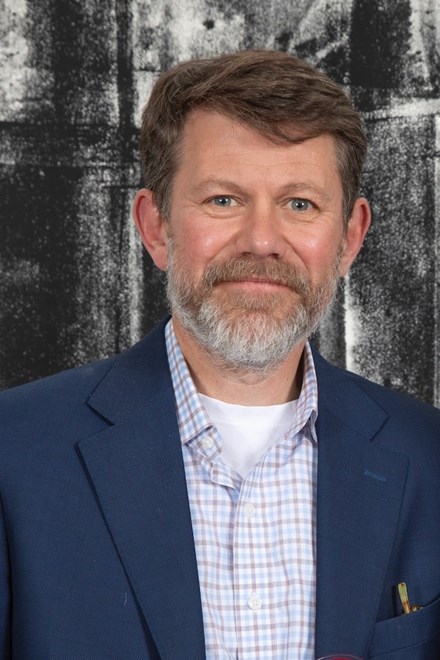
Jackson David Cothren
Director, HPCC
Leica Geosystems Chair in Geospatial Imaging
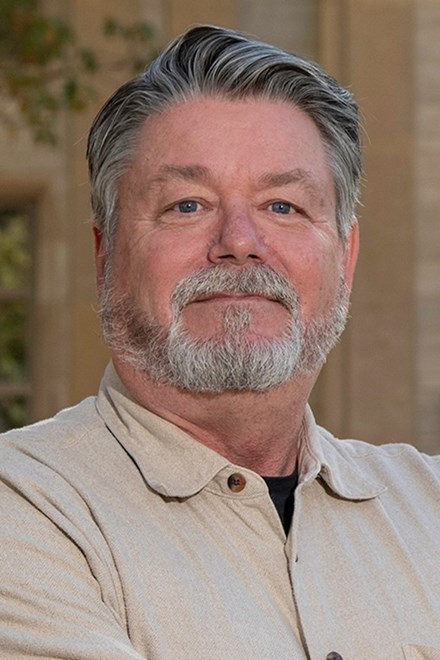
Marty Matlock
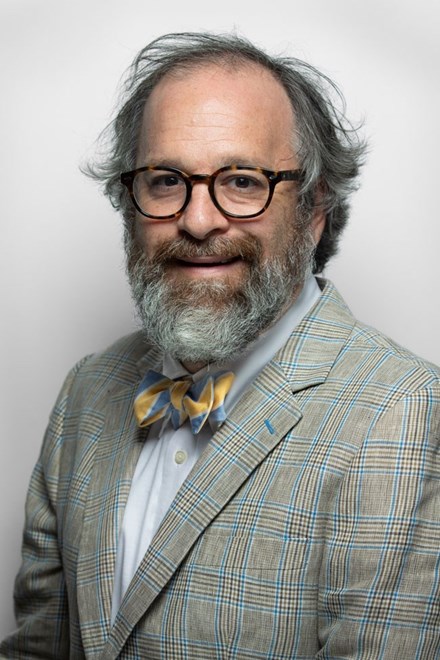
Lawton Lanier Nalley
Our Post Doctoral Affiliates
Gerardo Celis
Gerardo received his Ph.D. in Interdisciplinary Ecology from the University of Florida. He has a broad interest in terrestrial ecosystem processes from Tropical to the Arctic and how anthropogenic impacts influence these processes. His most recent work included understanding the impacts of rising Arctic temperatures on the carbon balance of arctic ecosystems. He has also studied the role of exotic invasive species in the trajectory of ecosystem recovery after disturbances and identified management methods to enhance and/or speed up ecosystem recovery. He comes from the University of Florida where he has served as an Agroecology lecturer in the Agronomy Department and has written and co-authored over 30 publications. He serves in the Department of Anthropology at the University of Arkansas as a postdoctoral fellow in Environmental Dynamics on the Collaborative Research project “Interactions of natural and social systems with climate change, globalization, and infrastructure development in Yamal (Russian Arctic),” focusing on the biotic components of the project.
Almudena Estalrrich
“I received my Ph.D. in Paleontolology from the Universidad Autónoma de Madrid in Spain. My background as a biologist and my complementary postdoctoral formation within Social Sciences (Prehistory) allow me to have a multidisciplinary approach to studying human behavior through the analysis of skeletal remains. My principal line of research is the Biocultural Evolution of the genus Homo, based on the analysis of dental wear, mainly in Homo neanderthalensis and Paleolithic Homo sapiens. In parallel, I am developing the following ongoing research projects: 1) Paleobiological study of the El Sidrón Neandertals; 2) Biological Anthropological analysis of the humans remains from the Mesolithic to Chalcolithic in the Cantabrian Region; 3) Development of a dental microwear database of modern samples to establish a baseline to compare and reconstruct the diet of fossil specimens.
I joined the Department of Anthropology (Ungar’s Lab) at the University of Arkansas to develop the 3DFOSSILDIET project (Tracing the Ontogenetic Evolution of Behavior in Neandertals and Anatomically Modern Humans in the Franco-Cantabrian Region. An Integrative study of 3D Tooth Wear Patterns), under the Marie Skłodowska-Curie Actions program (EU founded, project ID 891529).
I have written or coauthored more than 40 scientific papers and book chapters, being the first author in nine of them including Plos One, Journal of Human Evolution, American Journal of Physical Anthropology, International Journal of Paleopathology, and American Journal of Primatology) and 38 communications into national and international meetings. I have served as a reviewer for international scientific journals, scientific committees, National Funding Agencies reviewer and Doctoral Dissertation Committee.
I am a member of the El Sidrón cave Neandertal’s research team, and also have studied the collections from Musée de préhistoire de Tautavel and Laboratoire Départemental de Préhistoire du Lazaret (France), National Museum of Natural History (USA), Royal Belgian Institute of Natural Sciences (Belgium), National Museum in Dar es Salaam (Tanzania), Museo Arqueológico de Asturias (Spain), Museo de Arqueología y Prehistoria de Cantabria (Spain), Arkeologi Museoa (Spain). I have participated in various field campaigns in Spain.”
- Postdoctoral Institution: Senckenberg Gesellschaft für Naturforschung in Frankfurt am Main, Germany
- Postdoctoral Institution: University of Cantabria in Spain
- Graduate Institution: Spanish Natural History Museum (MNCN-CSIC, Madrid) and Universidad Autónoma de Madrid,
Spain.
John Tyler Fox
Dr. J. Tyler Fox, Post-doctoral fellow and Graduate Teaching Faculty, Department of Biological Sciences & USGS Cooperative Fish and Wildlife Research Unit, University of Arkansas.
Dr. Fox’s research focuses on the biological, physiochemical, and spatiotemporal processes that shape aquatic ecosystems across a range of biomes. His transdisciplinary research bridges the usability and scale gaps between field and remote sensing data using novel approaches and cross-boundary knowledge integration to anticipate and address emerging threats associated with rapid Earth System change.
Dr. Fox received his M.S. in Biology and GIS Technology from the University of Central Arkansas and his Ph.D. in Fish and Wildlife Conservation at Virginia Tech, where his NSF-funded research on seasonal water quality and human health in Botswana helped to identify important social-ecological couplings and feedbacks between climate, wildlife, and land use that drive microbial dynamics in the Chobe River, a vital dryland water source. Dr. Fox has also worked for the U.S. Fish and Wildlife Service on ecological contaminants issues in Wyoming and served in the US Peace Corps as a biologist for the Strandja Nature Park in Bulgaria.
Chang Liu
Dr. Liu's research interests focus on past, present, and future climate changes, including 1) reconstructing the past climate change and variation through paleoclimate data assimilation approach, 2) climate change on regional and continental scales, and 3) improving the method for calculating the freezing/thawing index.
Kishan Mahmud
Kirshan received his Ph.D. in Crop and Soil Sciences from the University of Georgia,
Athens. His research focused on improving soil health and crop nutrient density by
using local effective microorganisms (LEMs). After his PhD. he worked as a research
professional in the Center for Applied Genetic Technologies, Univeristy of Georgia,
Athens investigating the relationship between tall fescue, fungal endophyte, and the
soil fungal communities and the subsequent role of that three-way interaction in soil
nutrient acquisition and enviornmental stress tolerance by tall fescue.
I am working as a Soil Health Ecologist-Post Doc Fellow for the Arkansas Discovery
Farm, Division of Agriculture. I am investigating the dynamic interactions between
soil biological communities and agronomic crops, and how the soil biology, especially
soil microbial communities impact soil health in Arkansas soil. My current research
involves eight Arkansas Discovery Farms across the state, ranging from pastures in
northwest Arkansas to row crops in the Mississippi delta. My research involves collecting
soil samples from these farms and analyzing them for active soil carbon, soil extracellular
enzymes and different bacterial and fungal populations. The outcome of this research
has the potential to serve as suggested best management practices in terms of soil
health (microbiology) for the row crop growers and cattle producers in Arkansas. I
am also an Extension educator and closely working with different county agents, Arkansas
Soil Health Alliance (ASHA), Arkansas Conservation Districts and Arkansas NRCS.
Beatriz Moreno-Garcia
Dr. Beatriz Moreno-García, Post-doctoral researcher, Department of Biological and Agricultural Engineering, University of Arkansas
“I am a post-doctoral researcher at the Biological and Agricultural Engineering Department at the University of Arkansas. I started this position in 2018. My research is focused on sustainable agriculture and especially on rice systems. I evaluate water-saving practices implemented in rice production systems in the US Mid-South from both agronomic and environmental perspectives. This research includes the use of farm-level decision support tools. This research provides guidance to rice farms to compete in a market that increasingly demands sustainable products.”
Willy Mulimbi
Willy Mulimbi is a graduate of the Environmental Dynamics Program at the University of Arkansas and will beginning his post doc in Agricultural Engineering.
Taylor Polvadore
Taylor received her MA (2016) and PhD (2022) in Anthropology from the University of Florida. For her Ph.D. research, she combined behavioral and ecological data on African colobine monkeys she collected through fieldwork in the Taï National Park, Côte d’Ivoire with skeletal morphology data to examine predator avoidance, locomotor performance, and skeletal structural integrity. In 2022, Taylor accepted a post-doctoral research position in the Department of Anthropology at the University of Arkansas with the Terhune Lab. She is examining the ontogeny of feeding behavior in capuchin monkeys via diceCT analysis.
Elahe Tajfar
Elahe is a post-doc in Biological and Agricultural Engineering Department at the University of Arkansas. She is working on synthesis of land surface fluxes from different landscapes in the U.S. Mid-South, following the Delta Flux initiative. She is investigating the effects of land cover and management practices on the carbon dioxide. She received her Ph.D. in Civil and Environmental Engineering from the University of Hawaii at Manoa in 2019. Her Ph.D. dissertation focused on the estimation of turbulent heat fluxes via the synergistic assimilation of land surface temperature, air temperature and specific humidity into a variational data assimilation model.
Elahe Tajfar
Caitlin received her BA (2014) and MA (2016) in Anthropology at Texas Tech University with a focus on forensics and classical studies. She obtained her PhD (2021) in Anthropology from the University of Arkansas where she focused on the trigeminal nerve and its relationship to the teeth and diet in primates. Caitlin used the anatomical knowledge gained from her dissertation work to teach human anatomy at High Point University as a fellow in the summer of 2019. After graduation, Caitlin accepted a post-doctoral research position in the Terhune Lab to study the differences in chewing muscles between capuchin monkey species using the novel staining technique known as diceCT.
Our Alumni
|
||||||||
